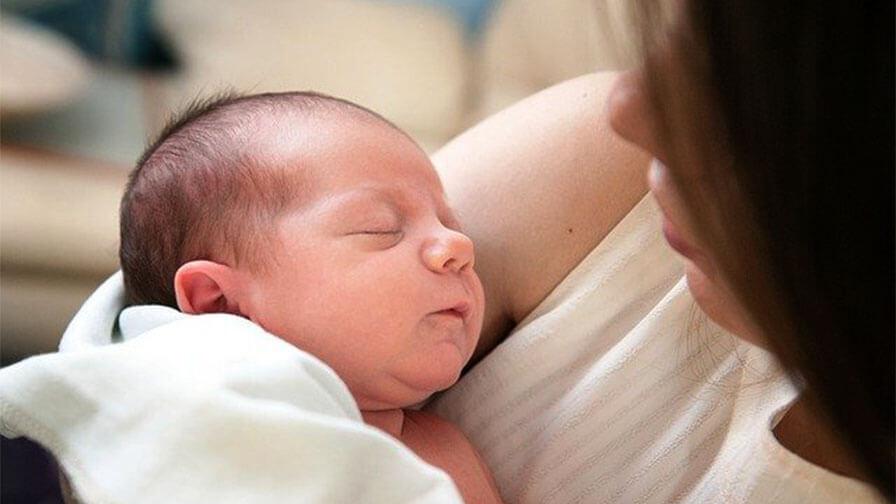Premature birth (when a baby is born before 37 weeks of pregnancy) affects around 55,000 babies every year and more than 1,000 babies die as a result of an early birth.1-5 Children who survive can experience lifelong disabilities such as cerebral palsy, learning difficulties, blindness and hearing loss. Premature birth is the single biggest cause of neonatal death in the UK but, despite this, it’s an underfunded area of research.

Charities Action Medical Research and Borne are continuing their joint efforts to try and change this by funding much-needed research to find answers about what causes babies to be born too soon and to develop treatments to prevent and reduce premature birth.
The two charities united efforts in 2016 when they pledged to work together to help babies born too soon and attract more funding to this vital area of research. Since then, together they have invested £1,421,068 into eight research projects to further our understanding of why babies are born prematurely, diagnose women for their risk of preterm labour early in their pregnancy, and develop new treatments to help reduce the numbers of babies being born too soon .
Current jointly funded projects underway to help tackle premature birth are:
- Understanding how labour starts to uncover new ways to prevent spontaneous preterm birth
Led by Dr Victoria Male of Imperial College London.
- Investigating whether a different surgical procedure can help reduce the risk of preterm birth after previous emergency caesarean section
Led by Professor Andrew Shennan at St Thomas' Hospital, King's College London.
- Developing a new antimicrobial therapy that can help prevent preterm labour in women at high risk
Led by Dr Ashley Boyle, Professor Simon Waddington, Professor Donald Peebles of University College London.
The two charities have now pledged to fund a further £500,000 together in this area for project grants across the UK for translational research into the causes of preterm birth in order to develop diagnostic, treatment and prevention strategies to reduce the rates of prematurity.
Director of Research at Action Medical Research, Sarah Wagstaffe-Jones says: “ Investing together in this under-funded area can really help deepen our understanding of why babies are born too soon and move us towards being able to develop vital treatments to help reduce the numbers of babies being born prematurely and to improve the lives of those born too early.”
Borne Chief Executive David Badcock explains: “ Our aim is to have a much better understanding of premature birth so that we can develop new treatments to prevent it from happening in the first place. We are therefore extremely pleased to be able to extend our highly valued partnership with Action Medical Research for Children, so that we can continue to jointly fund research that gives every baby the best chance to live a full and healthy life. ”
References
- Office for National Statistics, Vital statistics in the UK: births, deaths and marriages – 2021 https://www.ons.gov.uk/peoplepopulationandcommunity/populationandmigration/populationestimates/datasets/vitalstatisticspopulationandhealthreferencetables
- National Institute for Health and Care Excellence - Preterm labour and birth final scope April 2013 http://www.nice.org.uk/guidance/gid-cgwave0660/resources/preterm-labour-and-birth-final-scope2
- Office for National Statistics. Childhood mortality in England and Wales 2021. Table 4. https://www.ons.gov.uk/peoplepopulationandcommunity/birthsdeathsandmarriages/deaths/datasets/childmortalitystatisticschildhoodinfantandperinatalchildhoodinfantandperinatalmortalityinenglandandwales 2021 data tables. Release date Mar2023
- National Records for Scotland. Vital Events Reference Tables 2021, Table 4.5: Infant Deaths by sex and cause, Scotland 2010 to 2021 https://www.nrscotland.gov.uk/statistics-and-data/statistics/statistics-by-theme/vital-events/general-publications/vital-events-reference-tables/2021/list-of-data-tables#section4
- Northern Ireland Statistics and Research Agency: Registrar General Annual Report 2020 Stillbirths and Infant Deaths, Table 4.5: Stillbirths and infant deaths by sex and cause, 2012 to 2020: https://www.nisra.gov.uk/publications/registrar-general-annual-report-2020-stillbirths-and-infant-deaths
- Preterm labour and birth, November 2015 (updated June 2022), National Institute for Health and Care Excellence (NICE). Context | Preterm labour and birth | Guidance | NICE
NOTES TO EDITORS:
For more information on Action Medical Research:
Grace Wardley, Communications and Engagement Officer:
T: 07725 090008 or out of hours PR phone: 07754 320281
E: gwardley@action.org.uk
W: action.org.uk
Follow us on social: @actionmedres
Action Medical Research is the leading UK-wide charity dedicated to saving and changing children’s lives through medical research. For over 70 years we’ve helped pioneer ways to prevent disease and develop treatments benefiting millions of people. Our research has helped to beat polio in the UK, develop ultrasound in pregnancy, fight meningitis and prevent stillbirths. But we urgently need to develop more new treatments and cures for sick babies and children and we can’t do it without you. Join our fight for little lives today.
Charity reg. nos 208701 and SC039284.
Borne is a medical research charity working to identify the causes of premature birth. We bring
scientists and doctors together to advance our understanding of pregnancy, and to find effective
ways to screen women at risk of preterm birth and develop new treatments to prevent it. We
believe every child should have the chance of a full and healthy life, unaffected by disability. A baby’s
first hours should not be its hardest, or its last. Help us find answers to premature birth
Registered charity no. 1167073
For further information about Borne visit borne.org.uk
Follow Borne on Twitter at @BorneCharity
Like Borne’s Facebook page at @BorneCharity
Follow Borne on Instagram at @BorneCharity
Follow Borne on LinkedIn at Borne
